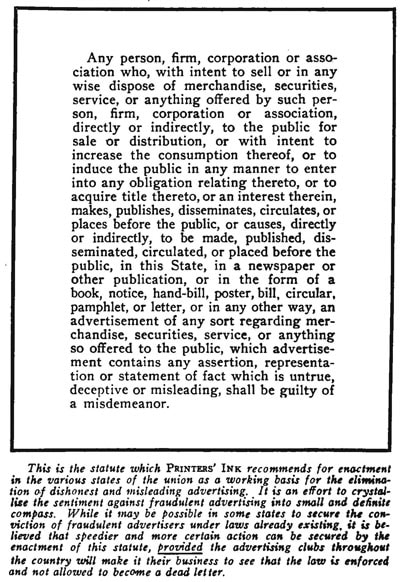
Printers' Ink was famous for proposing a model law that created criminal penalties for false advertising in 1911. It was widely adopted in states, however few prosecutors brought cases under it, because of prosecutorial resource constraints, and because it imposed strict liability (that is, the state did not have to prove intent to deceive) on false advertisers.
Nonetheless, it was among the first efforts to define the limits to which the government could restrain commercial speech, an issue that would dominate much of the 20th century with respect to censorship of both existing and new forms of media. The debate whether, and to what extent, the government should involve itself in regulating private speech in public venues continues today as social media and other forms of mass communication extend the power of the written and spoken word in ways not imaginable in the 18th century when the First Amendment was drafted.
 RSS Feed
RSS Feed